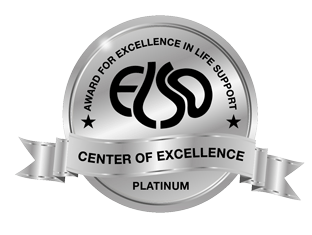For advanced lung disease diagnosis and treatment, UTHealth Houston stands as a leading institution in the nation. Our dedicated team of lung transplant specialists combine surgical expertise with a personalized approach, incorporating the latest research and cutting-edge technologies to tailor the optimal treatment strategy for each patient.
At UTHealth Houston, we have a rich history of addressing complex and acute lung conditions. Patients across the country seek our guidance in pulmonology, lung transplantation, and thoracic surgery. If you receive a diagnosis of an advanced lung condition, your physician may refer you to our esteemed lung transplant team, or you may reach out to us directly. Our patient-centric journey starts with a thorough evaluation, the first step in the meticulous process of determining whether a lung transplant procedure aligns with your unique medical needs.
At UTHealth Houston, our lung transplant program thrives on a multidisciplinary team approach. We assemble experts spanning diverse fields, including nutrition and physical therapy, to design the most suitable care plan for each patient.
Recognizing the value of accessible care, we streamline the process. This means rapid appointment scheduling, comprehensive testing during a single visit, and the seamless coordination of services among various departments. Our distinguished team members are dedicated to supporting you and your loved ones through every phase of the lung transplant journey.
At UTHealth Houston, our team of lung transplant specialists are experts in treating individuals afflicted by a wide spectrum of advanced lung diseases. Depending on your specific condition, your treatment plan might involve medications or supplemental oxygen to enhance respiratory function and alleviate accompanying symptoms. However, in cases where your condition progresses beyond the effectiveness of these treatments, a lung transplant may become a viable option.
For individuals dealing with severe end-stage lung disease and a life expectancy anticipated to be under two years, lung transplantation can become a key consideration for your health. A successful lung transplant can often yield years of improved quality of life and alleviating breathing difficulties. This intricate procedure is typically explored only when all other avenues for treating lung failure have proven unsuccessful.
Guidelines for referral pertain to prevalent lung diseases that may benefit from a lung transplant. While pulmonologists commonly initiate referrals, individuals can also take the initiative to refer themselves.
As candidates await transplant, their names are added to The United Network for Organ Sharing (UNOS) list, and most patients continue waiting at home. Throughout this period, the transplant team closely monitors their condition for stability. Upon identifying a suitable donor lung and completing a comprehensive evaluation, patients are contacted to come to the hospital for admission and surgical preparation.
Lung transplantation carries potential risks. Short-term concerns may include:
Long-term risks may include:
Patient-specific risks and potential benefits are thoroughly discussed by your care team aiming for successful outcomes while minimizing associated procedural risks.
Post-surgery period
The recovery time following a lung transplant is unique to each patient, ranging from two to three weeks or potentially longer. Some patients may require time in the intensive care unit (ICU) post-surgery. Throughout this period, the medical team remains dedicated to ensuring optimal patient care laying the foundation for long-term success.
The recovery phase typically extends over three to six months involving regular physician visits and ongoing assessments such as blood tests, bronchoscopies, and participation in a pulmonary rehabilitation program.
Prognosis
For many individuals, a lung transplant represents a life-saving intervention offering enhanced quality of life and an extended lifespan.
Recent advancements have significantly improved the survival rates for lung transplant recipients. As per the International Society of Heart and Lung Transplantation (ISHLT), the one-year survival rate stands at approximately 80%, while the five-year survival rate exceeds 50%. These figures mark a substantial improvement from two decades ago.
Post-recovery, most patients experience unrestricted physical activity and enjoy a high quality of life. Nonetheless, continual vigilance against rejection remains an integral part of the ongoing process and potential complications may require ongoing treatment.
UTHealth Houston has consistently been a pioneer in lung transplant research and patient care instilling optimism in those with end-stage lung diseases. Our multidisciplinary team specializes in addressing complex conditions that have been deemed untreatable elsewhere, delivering the most cutting-edge treatments administered by experienced experts.
 Program highlights
Program highlights
Our contributions to lung disease treatment at UTHealth Houston have redefined the standard of care for individuals in need of lung transplants. Notable achievements encompass: